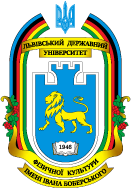A MODEL OF THE APPLICATION OF TABLE TENNIS IN THE CONTEXT OF THE DEVELOPMENT OF PSYCHO-PHYSICAL QUALITIES OF CHILDREN OF YOUNGER SCHOOL AGE
DOI:
https://doi.org/10.32782/2221-1217-2024-1-08Keywords:
school age, children, sport, table tennis, psychophysical qualitiesAbstract
The purpose of the research is to form a model of effective use of table tennis in the context of the development of psychophysiological qualities of children of primary school age. It was determined that table tennis gives an opportunity to develop reaction speed, coordination of movements and concentration of attention. Also, table tennis is a dynamic sport and requires the formation of certain tactics and strategies, it requires players to have a certain set of physical qualities and skills. It has been established that playing table tennis has positive social consequences for children of primary school age, as during this game the emphasis is on fairness, teamwork and respect for one's team and the opposing team. It has been proven that the practice of this sport for children of primary school age consists, first of all, in the fact that table tennis is an excellent source of training of fine motor skills and visual-motor coordination, which in the studied age period undergo the most rapid and active development. It has been found that in addition to cognitive and social benefits, table tennis can also affect the emotional well-being of children. A model of the effective use of table tennis in the context of the development of psychophysical qualities of children of primary school age has been developed. The very introduction of table tennis into the everyday life of children of primary school age during the war in Ukraine is a unique task, but it also brings enormous benefits in terms of psychophysical development and emotional support. The process of using table tennis in the context of the development of psychophysical qualities of children of primary school age in war conditions is characterized, which should take place in stages: ensuring safety and accessibility; psychological support; adaptation of training programs; community involvement; monitoring and impact assessment. With thoughtful planning and community support, table tennis can play a crucial role in the psychophysical development of children even in the most difficult times.
References
1. Бойчук Я.Д. Настільний теніс як засіб розвитку дитини: теорія та практика : монографія. Львів : Галицька видавнича спілка, 2021. 254 с.
2. Бондаренко Л.С. Педагогіка спорту: настільний теніс у вихованні школярів. Запоріжжя : Промінь, 2020. 158 с.
3. Бондарчук Л.М. Філософія спорту: соціально-культурний вимір настільного тенісу. Дніпро : Інновація, 2023. 262 с.
4. Жулинська С.І. Настільний теніс і дитяча психологія: ефекти та методики впровадження у школах. Тернопіль : Астон, 2019. 160 с.
5. Заблоцький Ф.О. Вплив настільного тенісу на розвиток волі та самоконтролю у молодших школярів. Чернігів : Час, 2022. 189 с.
6. Кулик М.В. Ефективність настільного тенісу в освітній діяльності: аналітичний огляд. Рівне : Оріяна, 2020. 142 с.
7. Кучерук Т.Д. Настільний теніс і психоемоційний розвиток молодших школярів. Чернівці : Букрек, 2022. 145 с.
8. Макаренко Г.І. Настільний теніс як засіб адаптації дітей до шкільного навчання. Івано-Франківськ : Лілея-НВ, 2021. 202 с.
9. Степаненко Т.В. Розвиток психофізичних здібностей молодших школярів через настільний теніс : навчальний посібник. Київ : Ліра, 2022. 210 с.
10. Федорова С.О. Настільний теніс у комплексній освіті: дошкільний і молодший шкільний вік. Львів : Апріорі, 2020. 195 с.






